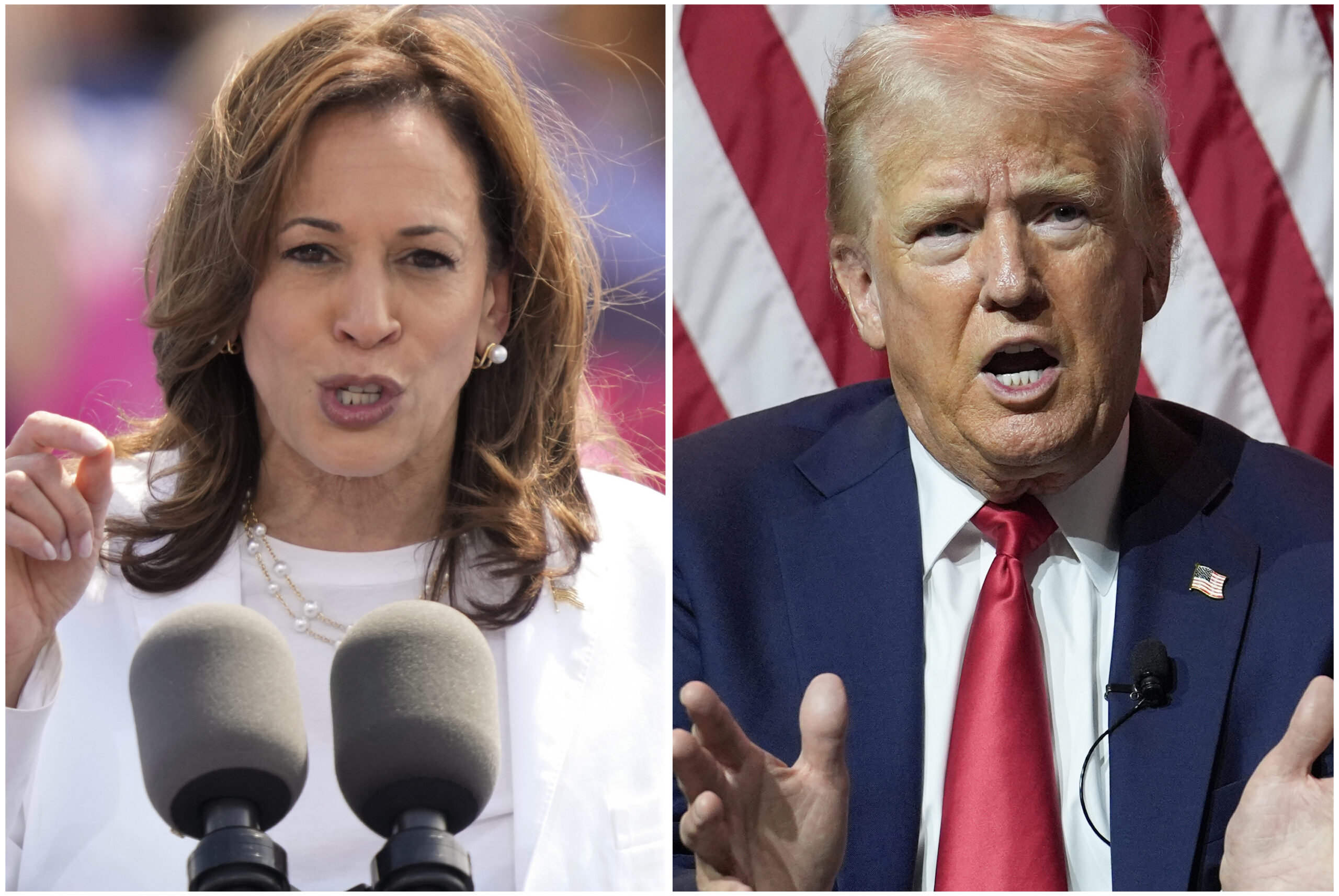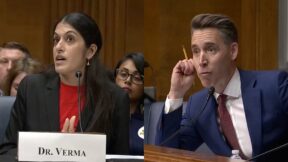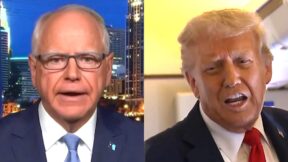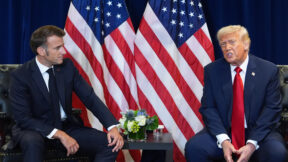Cook Political Survey: Trump Loses Advantage Over Harris on Inflation as Tariff Policy Unpopular In Swing States

AP Photo/Charles Rex Arbogast
The latest Cook Political Report Swing State Project Survey dropped on Wednesday and showed Vice President Kamala Harris leading or tied with former President Donald Trump in all the swing states, except for Georgia.
The large survey was conducted by BSG and GS Strategy Group between September 19 and the 25th among 2,941 voters. Cook Political editor in chief Amy Walter summed up the latest findings, writing, “Underneath the topline numbers, though, there have been some significant shifts, most notably Trump’s slipping advantage on his two strongest issues — inflation and immigration. However, Harris has seen some slippage of her own: as her lead among independent voters has shrunk from eight points this summer to two points in September.”
One of the most surprising takeaways from the survey is undoubtedly regarding voters’ perceptions of who can best manage to bring down inflation. Trump had long held an advantage on the issue over President Joe Biden and over Harris in the beginning weeks of her campaign. Cook’s August survey found Trump leading Harris 48 to 42 percent on who will be best at “getting inflation under control.” That lead has disappeared and the two candidates are now tied at 47 percent on the question, according to the September data.
Walter notes, however, that “as he did in August, Trump holds a five-point lead on the question on who voters trust to “deal with the economy” (50-45%)” in general. Sixty percent of swing state voters also said that inflation is the issue related to the economy that “concerns them the most.” Walter offered her take as to what is behind Harris’s gain in confidence regarding inflation:
There are a few explanations for this shift. The first is that Harris’ message on the economy has broken through. Since kicking off her campaign two months ago, Harris has honed in on an “affordability” message that stresses reducing the costs of pharmaceutical drugs, cracking down on price gouging and promoting affordable housing. Last week, she unveiled an 82-page economic policy plan
The survey also carried a warning for Trump on how swing state voters feel about his tariff plans, which many economists have warned could spike inflation. “Moreover, voters give Trump only a three-point lead on a centerpiece of his economic agenda — tariffs and trade. In fact, just 38% of swing state voters said they thought that a 20% tariff on imported goods would mean “companies would bring more manufacturing jobs back to the U.S.”, while a plurality of voters (45%) said that companies that import goods would “increase the prices consumers pay to pay for the tariff,” Walter wrote. She noted that younger voters and their opinions on the economy may end up being a critical unanswered question as to who wins this election:
Those voters, who are younger and more diverse than the electorate as a whole, are deeply pessimistic about the state of inflation (70% think it’s getting worse), and overwhelmingly trust Trump more than Harris on the economy. However, they also deeply dislike Trump’s style and behavior. The question isn’t just who they will ultimately support this November, but whether these more infrequent voters come out to vote at all.
Read the full analysis here.





Comments
↓ Scroll down for comments ↓